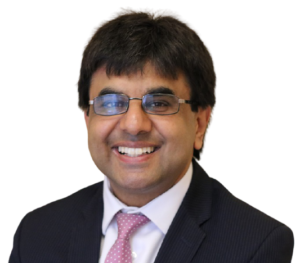Podcast: Play in new window | Download (Duration: 36:59 — 25.4MB)
Connect with the Investor Mama Tribe
Looking for ways to boost your income? Check out these resources to help you with your money journey.

Bio
Manoj Mistry is a professional coach based in London (UK) who helps a small number of motivated individuals to grow their wealth, businesses, and careers. He believes in the value of personal development and employs his own coaches and mentors whilst building his coaching business. Manoj has a strong interest in personal finance and investing. He worked in the investment banking industry for over 20 years – providing consultancy and expertise to some of the world’s largest financial organizations.
He has an MBA in Finance from Manchester Business School as well as being an alumnus of the University of Birmingham where he obtained a degree in Electronic & Computer Engineering. Manoj is a Certified Financial Risk Manager as recognized by the Global Association of Risk Professionals. He keeps abreast of financial initiatives and current issues via membership of the Chartered Institute for Securities and Investments and has been a private investor for over 30 years.
Key Take-Aways
- If hiring a financial advisor ask them how they earn their money and their attitude to overtrading. Ask them how they charge and their compensation structure.
- Assets under management- where you’re charged a percentage of the assets under management. The bigger account, the more, you will pay in fees. Financial advisors like this model because they can make more money for what they can bring in under management.
- Fee only- where you just pay the experts a set amount for his or her expertise to solve your particular requirements, independent of the size of your account. This way you don’t get penalized for being a great investor and investing over the long run.
- Fiduciary-is a person who holds a legal or ethical relationship of trust with somebody else. When somebody acts as a fiduciary for you, they are acting in your best interests.
- Fees matter. The lower the fees, the better.
- Investing in the stock market, doesn’t have to be intimidating. You don’t need to be a stock or options expert or any other sophisticated type of trading to do well. you can do just as well.
- Invest in a total broad index fund, whether it’s your country’s total stock market or international.
- Start investing early, invest for the long term and invest broadly so your spreading your risk around. It’s as simple as that.
- When my daughter was around 5 years old, I purchased shares for her in a company that makes consumer goods. When we would go shopping I would show her the label on different products and told her she will make money when people buy this because she was part owner and some of the money would go to her.She would look at the back of every single product and say, “Oh daddy we can’t buy this one. It’s not made by company X” Even though she was five, she intuitively got that.
- Make teaching your kids about money fun. Try to gamify it so that they at least start understanding how the world is set up.
- If you have a teenager who is demanding the latest expensive phone, instead of buying them the phone, buy shares in the company that makes it because over a few years, that investment might grow to such a level that they can buy five phones or a phone and a computer.
Lightning Round
1. What is one fun fact about you that not that many people know?
I obsessively like 1980’s music.
2. Who inspires you the most and why?
My mother because she came from a place of nothing, but never made it known to me that we might be inferior or are were starting from a negative or a smaller place. Even now she’s in her seventies, but she has a very positive outlook.
3. What books are you reading now or have read and loved that you’d recommend?
Rich Dad Poor Dad: What the Rich Teach Their Kids About Money That the Poor and Middle Class Do Not! by Robert Kiyosaki
The Diary of a Young Girl by Anne Frank
4. What is one actionable tip or piece of advice that you can tell our moms out there to help them on their financial independence journey?
Look at where your spends are and ask yourself, do I need this now? If the answer is no, put that money aside and even $5 here and there will add up. What you’re doing by saving now is you’re paying your future self. Sacrifice now because you may not need it and treat your future self, to a relaxing life.

Recent Comments